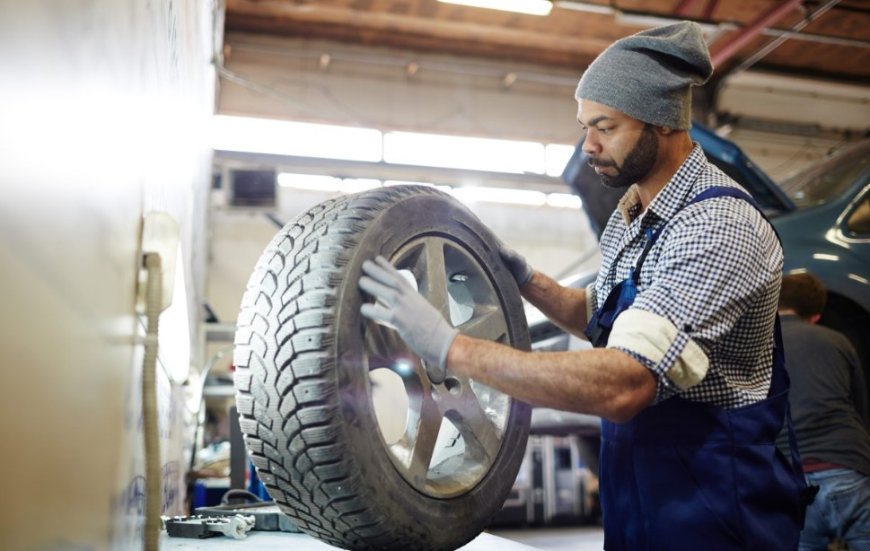Essential Safety Tips For Working as a Mechanic

The role of a mechanic is essential in keeping vehicles functioning safely and efficiently. However, the nature of this job often involves working in high-risk environments, making safety a top priority. Whether you're a seasoned professional or just starting after completing a car mechanic course, adopting and practicing safety tips can protect you from accidents and long-term health risks. Here’s a comprehensive guide to ensure safety in the workshop.
Understand Workshop Hazards
Mechanics frequently work with heavy machinery, electrical systems, and hazardous chemicals. Being aware of these potential dangers is the first step in minimizing risks. This includes understanding the safe handling of tools and machinery, as well as being mindful of your surroundings. Slippery floors, unstable equipment, or sharp tools can pose significant hazards if not addressed promptly.
Educating yourself through training programs such as a car mechanic course equips you with the foundational knowledge to identify and manage these risks effectively.
Wear Proper Personal Protective Equipment (PPE)
Wearing the right gear is non-negotiable for any mechanic. Essential PPE includes:
-
Safety Glasses: Protect your eyes from flying debris or harmful chemicals.
-
Gloves: Choose gloves suitable for the task, whether handling hot engines or sharp tools.
-
Steel-Toed Boots: These protect your feet from falling objects and sharp materials.
-
Coveralls: Durable coveralls shield your skin and clothing from oils and grease.
-
Ear Protection: Loud machinery can cause hearing damage over time, making earplugs or earmuffs a necessity.
Investing in quality PPE ensures you’re always ready to work safely, regardless of the task.
Maintain a Clean and Organized Workspace
A cluttered workspace can increase the chances of accidents. Ensure tools are stored in designated areas and spills are cleaned up immediately. Proper organization also makes it easier to locate the tools you need, improving efficiency and reducing downtime.
Regularly inspect the workshop to identify and address any potential safety hazards. For example, ensure that cords and hoses are not lying across pathways where they might trip someone.
Use Tools and Equipment Correctly
Improper tool usage is a leading cause of injuries in workshops. Always ensure you are using the right tool for the job, and check that it is in good working condition before starting. Faulty or worn-out tools should be repaired or replaced promptly.
Training is invaluable in this regard. Enrolling in a car mechanic course provides hands-on experience with various tools and machinery, teaching you the correct and safe way to use them.
Follow Proper Lifting Techniques
Mechanics often deal with heavy vehicle parts that require lifting. Improper lifting can result in severe back injuries. Always follow these basic lifting techniques:
-
Bend at the knees, not the waist.
-
Keep the load close to your body.
-
Avoid twisting your torso while lifting.
-
Use lifting equipment like jacks or hoists whenever possible.
By practicing proper lifting techniques, you can reduce the risk of long-term injuries and work more efficiently.
Be Cautious with Chemicals
Automotive workshops are home to various chemicals, including brake fluids, oils, and cleaning agents. These substances can pose serious health risks if not handled correctly. Always read the labels and Material Safety Data Sheets (MSDS) for information on safe usage and disposal.
Wear appropriate gloves and masks when handling chemicals, and ensure proper ventilation in the workspace to minimize exposure to harmful fumes.
Stay Updated on Safety Training
The automotive industry evolves constantly, with new tools, technologies, and safety protocols being introduced regularly. Staying updated through advanced training and certifications helps you stay ahead of risks.
Courses like the car mechanic course not only teach technical skills but also emphasize the importance of safety, ensuring you’re well-prepared to tackle challenges in the workshop.
Communicate and Collaborate
Safety in a workshop is a collective responsibility. Communicate openly with your team about potential hazards or unsafe practices. Regular safety meetings and training sessions can help reinforce the importance of maintaining a safe environment for everyone.
If you notice someone engaging in risky behavior, address it constructively and encourage them to follow proper procedures. A collaborative approach ensures that safety becomes a shared priority.
Take Care of Your Health
Beyond immediate safety measures, mechanics should also consider their overall health. Prolonged exposure to loud noises, fumes, or repetitive movements can lead to long-term health issues. Schedule regular check-ups and address any discomfort or injuries promptly.
Additionally, maintain a balanced diet and exercise regularly to build strength and resilience, which can help you perform your job more safely and effectively.
Conclusion
Working as a mechanic comes with its fair share of risks, but with the right precautions, these can be minimized significantly. From wearing proper PPE and organizing your workspace to undergoing comprehensive training like a car mechanic course, every effort you make towards safety contributes to a healthier and more productive work environment.
By prioritizing safety, mechanics can not only protect themselves but also ensure they provide the highest quality service to their clients.
What's Your Reaction?


















